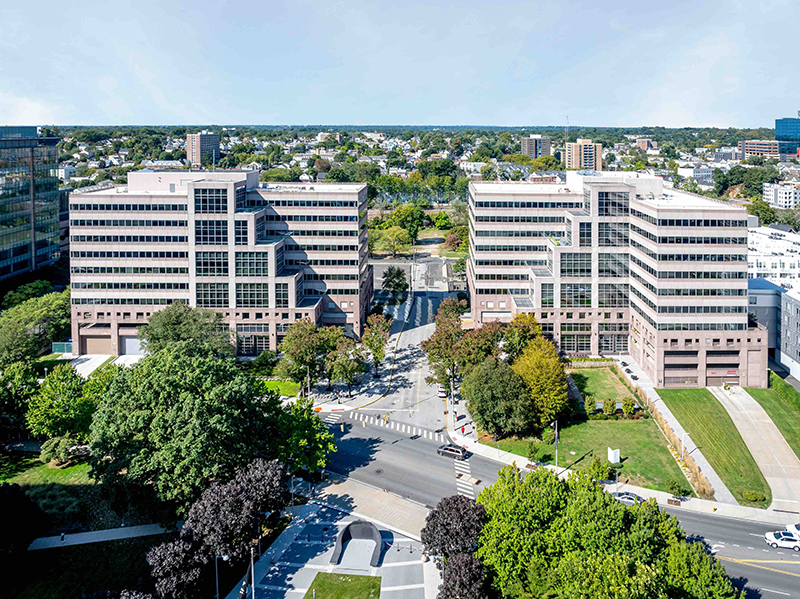News:
Connecticut
Posted: April 17, 2014
Issues concerning the siting of medical marijuana dispensary facilities in Connecticut
The Connecticut Department of Consumer Protection (the DCP) has recently announced the award of six licenses for medical marijuana (MM) dispensary facilities. Given this event, it is appropriate to consider certain issues concerning the siting of such facilities.
Initially, a distinction must be drawn between a "dispensary" and a "dispensary facility." In Connecticut, only an individual licensed as a registered pharmacist by DCP, may also be licensed by DCP as a dispensary. The dispensary facility is the place of business where MM is sold at retail by a licensed Dispensary, either to a registered MM patient, or to the patient's registered caregiver, pursuant to a prescription from a doctor who must also be registered and approved by DCP to issue such prescriptions.
Criteria which DCP must consider in determining whether to grant a dispensary facility license include the following: its proximity to other dispensary facilities; whether the population of registered MM patients in the area justifies the Dispensary Facility; whether the Dispensary Facility would have a detrimental effect on certain existing institutions including places of worship, schools, charitable institutions, hospitals or veterans' homes; and whether the number of dispensary facilities is such that the granting of an additional license would be detrimental to the public interest.
In addition to satisfying all relevant DCP requirements and obtaining a DCP license, a dispensary facility must also obtain local Planning and Zoning (P&Z) approval from the municipality within which the dispensary facility is proposed to be located. Concerns raised by P&Z officials who have considered this issue include a possible increase in criminal activity, and security concerns. Increased criminal activity is a concern due to the possibility that sellers of illegal cannabis may attempt to undercut dispensary facilities, by selling to registered MM patients at a lower price in the immediate vicinity of a dispensary facility, as well as the possibility that dispensary facility customers could be robbed before or after they conduct their business.
The second possibility leads directly to the next concern - security - because of the assumption that (at least initially), the great majority of dispensary facility transactions will be in cash, because banks are reluctant to give dispensary facilities either access to checking accounts, or merchant status with respect to credit and debit cards. This is so because all forms of cannabis, MM or otherwise, remain illegal under federal law. As a result, banks are concerned that they will be subject to seizure of their assets and/or loss of federal insurance protection, if they take on MM clients. These concerns remain notwithstanding recent statements by the U.S. Attorney General intended to address them, because banks would find it difficult to perform the due diligence necessary to confirm that their MM account holders are complying with all Connecticut legal requirements concerning MM.
The uncertainty surrounding dispensary facilities resulting from issues including those above, has resulted in the inconsistent treatment of dispensary facilities by P&Z officials, from municipality to municipality. For example, certain municipalities have imposed a moratorium on the consideration of such facilities entirely, until these issues have been resolved, or at least addressed more fully. Other municipalities have enacted regulations specific to MM facilities, allowing them in certain zones. At least one municipality treats a dispensary facility the same as a retail pharmacy, thus permitting a dispensary facility to be sited in any commercial zone. Another municipality has actually approved a dispensary facility in an industrial zone, deeming it to be a medical facility permitted in such a zone.
The disparate treatment of dispensary facilities across municipalities will likely continue until either (1) the first licensed dispensary facilities are up and running without major issues; (2) the federal government takes more concrete regulatory steps toward decriminalizing MM; or (3) both. Insofar as Connecticut has made the major policy decision to legalize MM to reduce the suffering caused by certain debilitating medical conditions, it is hoped that the concerns of P&Z officials are assuaged soon.
Alan Curto is a partner in the administrative and regulatory practice area at Halloran & Sage LLP, Hartford, Conn.
Tags:
Connecticut
MORE FROM Connecticut
CBRE brokers sale of Stamford Towers - 326,468 s/f Class A office
Stamford, CT The CBRE team of Jeff Dunne, Steve Bardsley, and Travis Langer, in collaboration with David Block, completed the sale of Stamford Towers, located at 680 & 750 Washington Blvd. CBRE represented the seller, CBRE Investment Management, and procured the buyer, a joint venture of Lamar Companies

Quick Hits










.png)